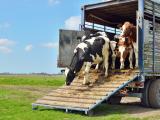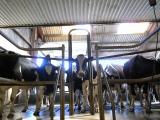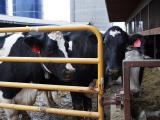Jan 23, 2012
WHO eyeing mid-February meeting on H5N1 research controversy
The World Health Organization (WHO) is tentatively planning to invite technical experts to Geneva in mid February to try to resolve a controversy over the proposed publication of two contentious studies on H5N1 avian influenza, the Canadian Press (CP) reported Jan 21. Dr. Keiji Fukuda, the WHO's assistant director-general for health security and the environment, said the meeting will probably involve fewer than 50 people and is tentatively set for Feb 16 and 17. The controversy was sparked by the recommendation of the US National Science Advisory Board for Biosecurity (NSABB) to withhold details of the two studies, in which H5N1 viruses in ferrets reportedly gained the ability to spread through the air. Science and Nature, the journals expected to publish the reports, agreed to withhold the details of the studies if a way can be found to share them with responsible scientists. Participants in the WHO meetings will include members of the Dutch and American teams that conducted the two studies, experts from the WHO's network of flu labs, and people directly involved in the dispute, the CP reported. Fukuda said the meeting's aim will be to identify the short- and long-term issues that need resolution and begin work on the most critical ones. "We are not setting this up as a political meeting," he said. "We are setting this up as a meeting of extremely knowledgeable technical people." Ron Fouchier, lead author of one of the two studies, said the idea of starting the process with a fairly small meeting is sensible, according to the story. Fouchier was one of 39 flu researchers who on Jan 20 announced a voluntary moratorium on H5N1 transmission studies to allow time for airing of the issues involved. Fukuda told the CP that the WHO welcomes the break, saying it "gives everybody a little space to move."
Jan 21 CP story
Jan 20 CIDRAP News story on research moratorium
Mexico reports 573 H1N1 cases, 9 deaths
Mexico has recorded 573 cases of 2009 pandemic H1N1 flu this season, including 9 fatalities, Agence France-Press (AFP) reported yesterday. That number represents 240 new cases since Jan 18, the story said. The pandemic strain makes up 90% of all influenza isolates detected in Mexico, which is in stark contrast to the rest of the world, where H3N2 is generally the dominant strain, according to WHO data.
USDA awards $25 million for E coli prevention in beef
The US Department of Agriculture (USDA) today awarded a $25 million research grant to the University of Nebraska-Lincoln (UNL) to help reduce the occurrence of and public health risks from Shiga toxin–producing Escherichia coli (STEC) along the entire beef production chain. "This research will help us to understand how these pathogens travel throughout the beef production process and how outbreaks occur, enabling us to find ways to prevent illness and improve the safety of our nation's food supply," said Chavonda Jacobs-Young, acting director of USDA's National Institute of Food and Agriculture, in a USDA press release. UNL's Dr. James Keen will spearhead the effort to improve risk management and assessment of eight strains of STEC in beef, including the O104 strain that caused the recent outbreak tied to sprouts and centered in Germany. The five objectives of the project are detection (including rapid tests), biological and epidemiologic characterization of outbreaks, interventions at various production stages, risk analysis, and risk management and communication.
Jan 23 USDA news release
Study: About 7% of US pork samples harbor MRSA
In a three-state survey,about 7% of pork sold in stores was found to harbor methicillin-resistant Staphylococcus aureus (MRSA)—higher than other US studies have found—and the contamination rate was similar in conventionally produced meat and in meat from antibiotic-free pigs, according to a study in PLoS One. Iowa and Minnesota researchers analyzed 395 meat samples from 36 stores in those two states and in New Jersey. Of the samples, 26, or 7%, tested positive for MRSA (and 58% tested positive for methicillin-sensitive S aureus). The researchers found no statistical differences for any type of S aureus, including MRSA, between conventional pork and pork labeled as raised without antibiotics or "antibiotic growth promotants." Lead author Tara Smith, PhD, of the University of Iowa, said, however, "It's possible that this finding has more to do with the handling of the raw meat at the plant than the way the animals were raised," according to a university press release. The authors say the study is the largest of its kind in the United States. They conclude, "MRSA prevalence on pork products was higher than in previous US-conducted studies, although similar to that in Canadian studies." MRSA causes roughly 185,000 cases of foodborne illness each year, according to the news release.
Jan 19 PLoS One study
Jan 20 University of Iowa press release




















